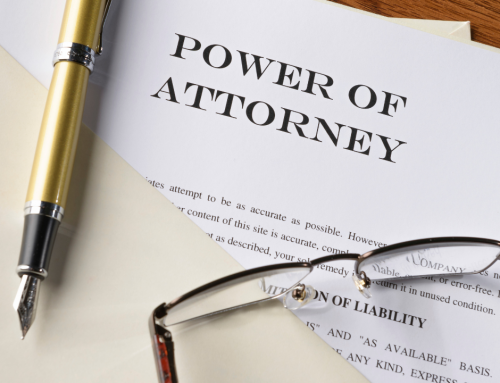A Lasting Power of Attorney is a legal instrument that empowers individuals (called ‘the Donor’) to appoint one or more persons (called ‘the Attorney’) to make critical decisions regarding their property & finances and/or health & welfare when they are no longer able to do so themselves.
This legally binding document ensures that your wishes are respected even in the event of a loss of capacity or being unable to act, making it an essential part of estate planning and healthcare decision-making process. Different rules apply for the different types in terms of a loss of capacity.
This year, Alzheimers Research UK has been raising awareness of frontotemporal dementia, (FTD) a condition which tends to develop in people at a younger age compared to, say, Alzheimer’s. People diagnosed with FTD tend to be between 45 and 64, although people younger or older than this can still be affected – sometimes as young as 40.
The diagnosis of a condition such as FTD would be a typical example of a case where an individual would seek to set up a Lasting Power of Attorney.
In this blog, we will delve into the details of the Lasting Power of Attorney, its types, significance, and the steps involved in creating one.
Understanding Lasting Power of Attorney
A Lasting Power of Attorney (LPA) is a document that grants someone the legal authority to make decisions on your behalf when you are no longer able to do so. There are two main types of LPAs under English law:
1. Property and Financial Affairs LPA:
This type of LPA authorizes an individual (known as the attorney) to manage your financial and property matters. This includes tasks like paying bills, managing investments, and selling property if necessary.
2. Health and Welfare LPA:
This LPA empowers your chosen attorney to make decisions regarding your health and personal welfare, including choices about medical treatment and care.
The Power of Attorney becomes “lasting” when it is registered with the Office of the Public Guardian (OPG) and remains valid even if the donor (the person creating the LPA) loses mental capacity. It’s important to note that an LPA can only be created when the donor is still mentally capable.
Significance of Lasting Power of Attorney
The Lasting Power of Attorney is crucial for several reasons:
- Ensuring Your Wishes are Honored: Creating an LPA allows you to designate someone you trust to make decisions on your behalf. This ensures that your wishes, values, and preferences are respected when you are unable to express them.
- Avoiding Court Intervention: Without an LPA in place, if you become incapacitated, the court may need to appoint a deputy to make decisions for you. This process can be time-consuming, costly, and may result in decisions being made that you wouldn’t have chosen.
- Peace of Mind: Knowing that you have a trusted person in charge of your affairs or healthcare can provide you with peace of mind. It also eases the burden on your loved ones, who would otherwise be left in a difficult position when making these decisions.
Steps to Create a Lasting Power of Attorney
Creating an LPA is a relatively straightforward process, but it does require careful consideration. Here are the steps to follow:
- Choose Your Attorney: Select someone you trust implicitly to act on your behalf. This person should be reliable, capable, and willing to take on this responsibility. Often this is a close friend or family member. You can choose more than one, and you should do so in relation to jointly owned assets.
- Complete the LPA Form: The form consists of two parts: one for property and financial affairs and the other for health and welfare. The Will Centre can assist in this.
- Complete and Sign the LPA Form: You, your chosen attorney, and the certificate provider must sign the LPA form. Ensure that all sections are accurately completed. This is a service The Will Centre offers.
- Registration: To make the LPA legally binding, you need to register it with the Office of the Public Guardian. This process can take a few weeks, and there is a registration fee involved payable to the OPG; certain exceptions may apply to waive all or part of the registration fee. The Will Centre can send this to the OPG for you.
- Safe Storage: Keep a copy of the LPA in a safe place, and inform your attorney where it can be found if needed.
The Lasting Power of Attorney is a vital tool law that ensures your financial and healthcare decisions are made according to your wishes, even when you are unable to make them yourself.
By taking the time to carefully select your attorney and following the proper legal procedures, you can secure your future and provide peace of mind to both yourself and your loved ones. Estate planning and decision-making during incapacity are serious matters, and having a legally binding LPA in place is a responsible step in preparing for the unexpected.
You can find out more about our Power of Attorney services here. If you have any questions, don’t hesitate to contact us.






